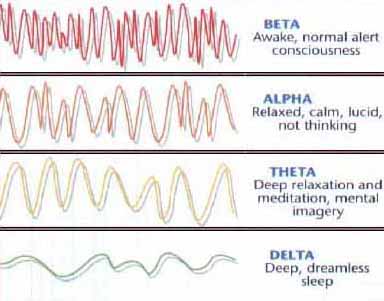By Barry Keate
Barry Keate, has lived with tinnitus over 40 years and has published 150+ research articles on numerous aspects of tinnitus. He is an expert on the condition and a well-known advocate for those with tinnitus.
Abnormal brain activity patterns occur in many neurological conditions. Recent research published in the journal Nature Communications suggests that similar abnormalities occur in brainwaves of those with tinnitus, depression, neuropathic pain and Parkinson’s disease. These patterns could all respond to the same treatment and Vagus nerve stimulation may be effective for all four conditions. (1)
Researchers proposed in 1996 that specific abnormalities in brainwave activity could be common to several neurological diseases. Prior to this, pain researchers were studying brainwave patterns for pain. Tinnitus researchers were doing the same for tinnitus, and so forth. No one connected the fact that four neurological conditions, including depression and Parkinson’s disease, have something in common, an abnormality that linked the conditions.
The new theory, called Thalamacortical Dysrhythmia (TCD), states that patients with this condition have a drop in brainwave frequency in neurons of the thalamus and alpha waves are replaced by theta waves.

The thalamus is part of the forebrain that is responsible for relaying signals from sensory inputs to proper areas of the cerebral cortex where they can be processed.
Alpha waves calm people down and lead to feelings of relaxation and contentment. Excess theta waves lead to impulsiveness, inattention and depression. When alpha waves succumb to theta waves, the thalamus becomes hyperactive and the predominant alpha brain wave is suppressed.
Researchers at the University of Texas, Dallas found this same brainwave aberration in tinnitus, depression, neuropathic pain and Parkinson’s disease. In tinnitus, the abnormality was identified in the auditory cortex. Chronic pain patients had it in the somatosensory cortex. Parkinson’s patients had it in the motor cortex and depressed patients had the abnormality in deeper brain layers.
The study included 541 individuals including 264 healthy volunteers, 153 tinnitus patients, 78 chronic pain patients, 31 Parkinson’s patients and 15 with major depression. Using electroencephalography (EEG) measuring, they successfully predicted which areas of the brain exhibited brainwave abnormalities in each patient.
While more studies are needed to validate the results found in this study, the findings indicated, “TCD as an oscillatory mechanism underlying diverse neurological disorders” according to the investigators.
What this means to those of us who suffer from tinnitus, as well as those who have one or more of the other neurological conditions, is that there may be a single therapy that can reduce or eliminate the conditions’ effects. The researchers of this study believe that therapy may be Vagus Nerve Stimulation (VNS). They plan future studies using VNS therapy for the conditions.
We published a previous article on Vagus Nerve Stimulation which discusses the function of the nerve relating to tinnitus. It has recently been shown to be possible to stimulate the vagus nerve externally, in the outer ear, avoiding the invasive procedures necessary in the past.
Vagus Nerve Stimulation is still in the research phase. It has been successfully used for depression and researchers are developing protocols for tinnitus treatment. It may be the most important breakthrough in tinnitus therapy in many years and now shows promise for other neurological conditions as well.
References:
1 – Vanneste S, Song JJ, De Ridder, D. Thalamacortical Dysrhythmia Detected by Machine Learning. Nature Communications 9, 16 March 2018.
Get Free Shipping!
Order now and get free shipping on either the Tinnitus Starter Kit or Combo Pack. Try the doctor recommended products with clinically proven ingredients for tinnitus. No coupon code required.

